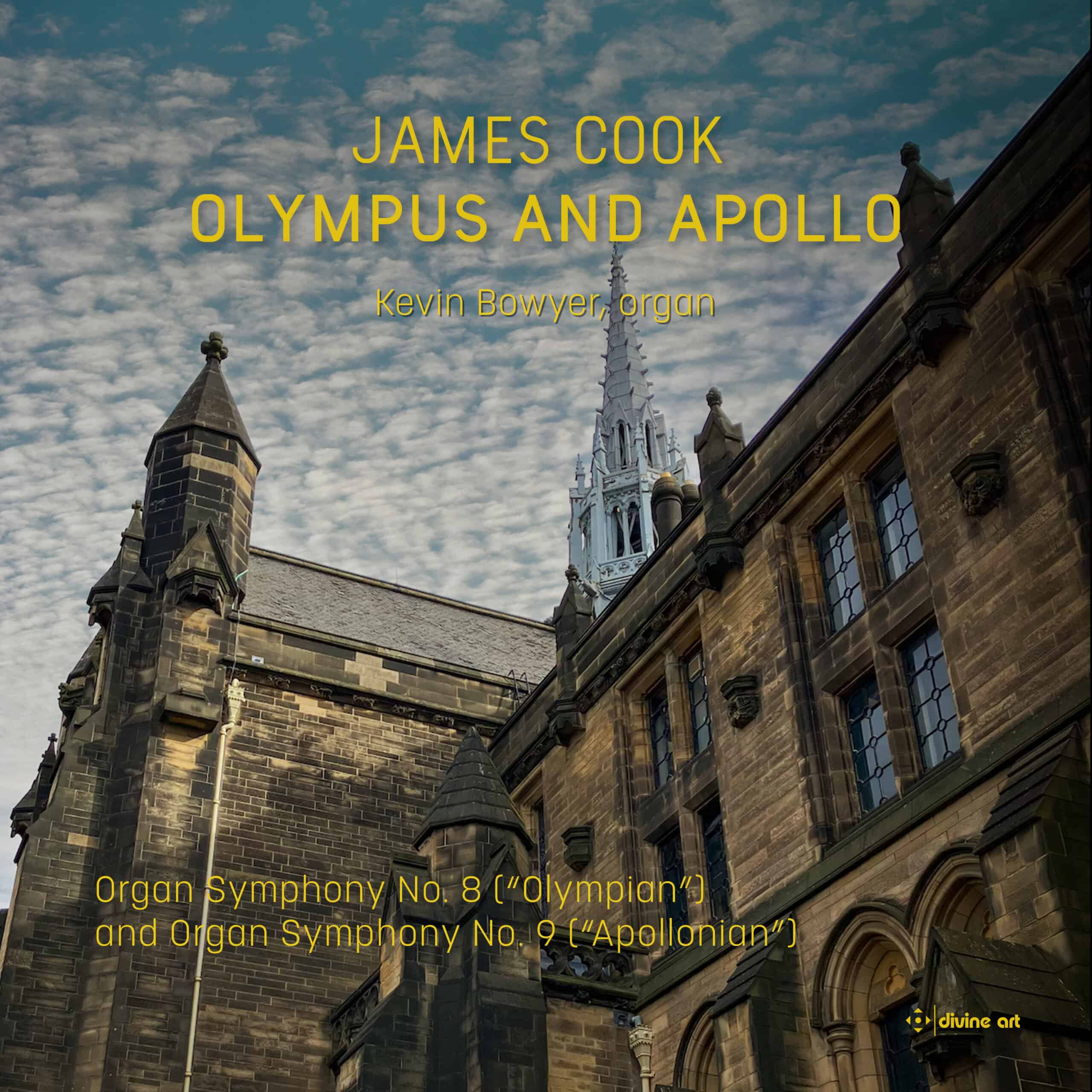Klassik
The English label Divine art has long been committed to an internationally little-known composer.
For the 60th On the occasion of the composer James Cook, the busy Scottish organist Kevin Bowyer recorded two of his nine organ symphonies. Organ symphonies are not the typical oeuvre for British composers, but Cook, whose musical career is unusual, is also an exciting personality. He only briefly studied composition at the University of Oxford in 1994, a large part of his musical creations goes to sacred music.
The organ symphonies No. 8 ‘Olympian’ and No. 9 ‘Apollonian’ presented here were both created in 2006, and can be described by their harmonic concept as an update of the French organ symphonies of the late 19th century. century. The eighth symphony is four movements, with two substantial corner movements, a quotation from the Baroque combines the reference to Mount Olympus with a ‘stairse into heaven’. In fact, the music is deeply spiritually transcendental, but cannot be assigned to a Central European, British or international tradition in terms of pon. Even if the middle clauses are called ‘Anglaise’ and ‘Pastorale’, this has nothing in common with the so-called English Pastoral School. ‘Pastorale’ is formally perhaps one of the strictest sentences in terms of sentences, perhaps one can build a bridge to Max Reger’s passaglie and canon-like organ-like movements on the one hand and to polyrhythmics on the other.
Comparable to the French organ symphonies, the Ninth Organ Symphony is seven-sent, with only the final movement of an extensive scope. Cook described the symphony as a work of light and movement, and this, according to Cook, describes a long hot summer day trip to the sea in Victorian and Edwardian times. One wishes that Cook would bring less extra-musical thoughts into his music – this distracts a little from their qualities and rather highlights the eclectic weaknesses.
We know from his discography that Bowyer has no technical difficulties, but his tonal aesthetics have changed significantly in recent years compared to his Sorabji and Alkan recordings. Always curious about unknown terrain, this is precisely the essential constant of his discography: the unknown, the surprising, the unfamiliar. Cook offers plenty of this, and Bowyer’s creative skills can be expressed unbroken. The recording was made on Bowyer’s ‘house organ’ of the Glasgow University Memorial Chapel, a 1927 Willis organ that was renovated by Harrison & Harrison in 2005. Since the renovation, Bowyer can be heard regularly on this organ.
@divineartrecordingsgroup
A First Inversion Company
Registered Office:
176-178 Pontefract Road, Cudworth, Barnsley S72 8BE
+44 1226 596703
Fort Worth, TX 76110
+1.682.233.4978












